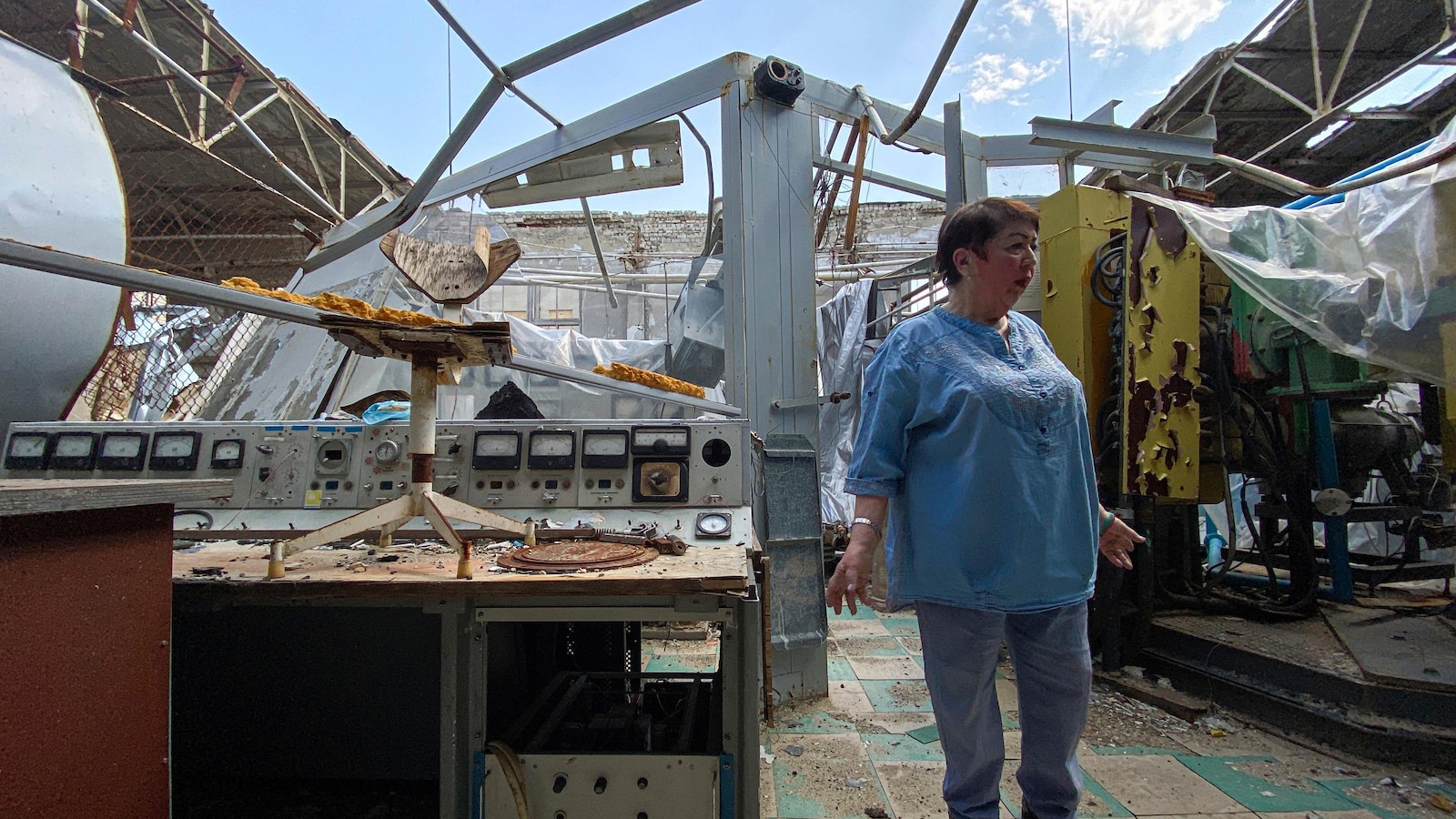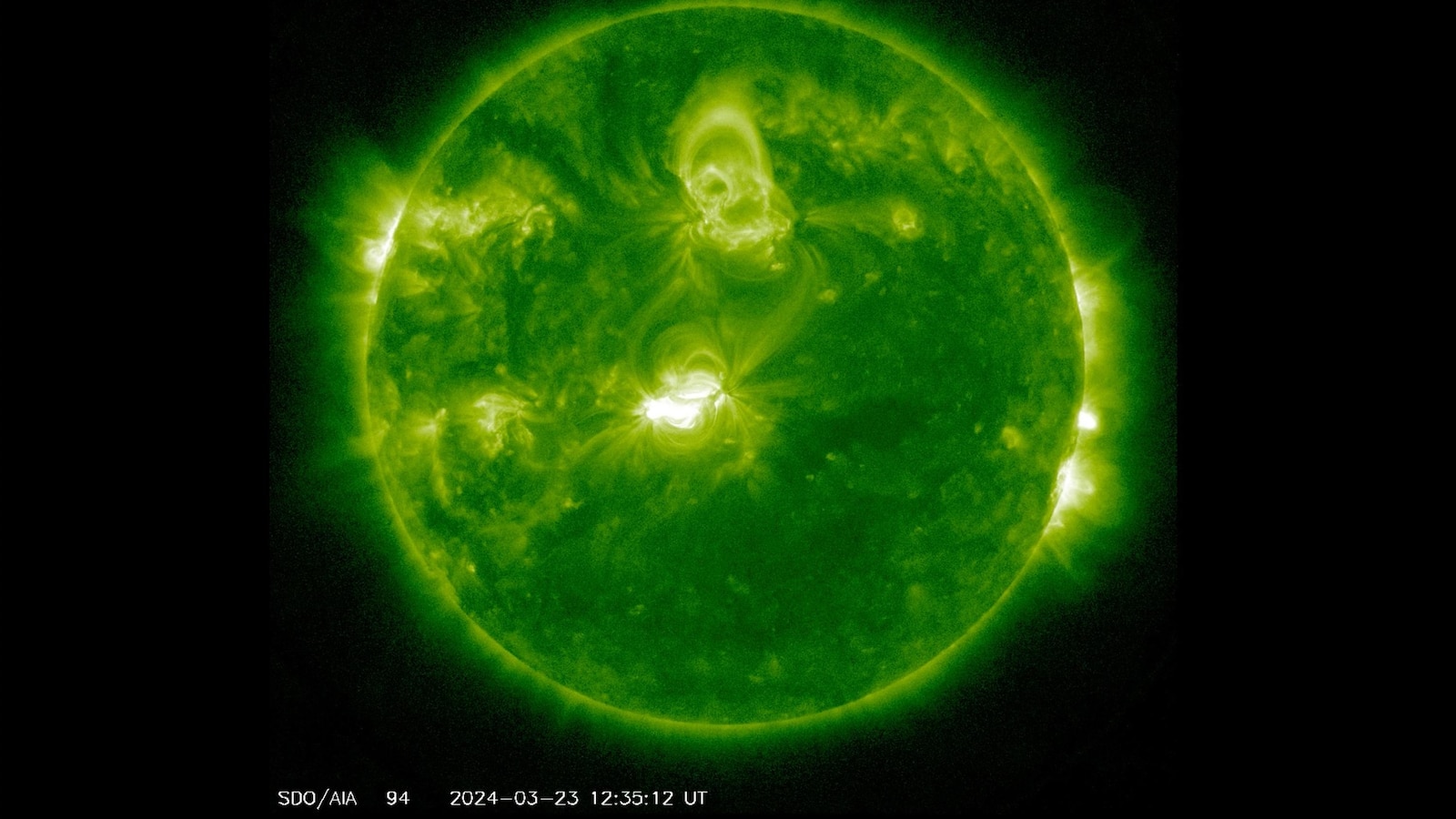
PARIS — Ukraine will need more than a billion dollars to rebuild scientific infrastructure that was damaged or destroyed during two years of Russia’s war on its neighbor, the United Nations’ cultural and scientific agency said on Monday.
More than 1,443 scientific facilities, many attached to the country’s universities, have been damaged or destroyed along with 750 pieces of vital technical equipment, most of which is beyond repair, UNESCO said in a report released Monday.
The war, now in its third year, has also depleted the science sector of funds and dispersed Ukraine’s scientists, displacing many within the country and sending others into exile.
The situation around the Institute for Safety Problems of Nuclear Power Plants, near the Russia-occupied Zaporizhzhia Nuclear Power Plant in Ukraine’s southeast, is of particular concern, the report said. The institute’s essential equipment for monitoring the nuclear industry has been stolen or destroyed, representing a safety threat in the region and beyond, the report said.
Before the war, Ukraine was internationally known for significant contributions in computer science, nuclear physics and astronomy, among other areas.
“We must protect and support (scientific) research in Ukraine,” UNESCO Director-General Audrey Azoulay said. She added: “Scientists, engineers and other experts will be essential to the country’s recovery.”
A total of 1,443 buildings belonging to 177 scientific institutions have been damaged or destroyed in the war. Restoring these facilities will cost more than $ 1.21 billion – including $980.5 million for universities that have sustained the brunt of damage, the report said. The total cost to restore essential research equipment is estimated at $45.9 million.
Since the start of the war, some 10,429 scientists working in the public research sector have been internally displaced or exiled. Of 5,542 scientists who have fled the country, Germany and Poland host the largest number of them. Before the war, Ukraine employed 88,629 scientists.
Last month, UNESCO estimated that Ukraine’s interlinked culture and tourism sector have lost over $19 billion in revenue during the war that started on Feb. 24, 2022. The agency said the fighting has damaged 341 cultural sites across Ukraine, including in Ukraine’s capital, Kyiv, and in the cities of Lviv in the west and Odesa in the south.
Ukraine will need nearly $9 billion over the next decade to rebuild its cultural sites and tourism industry following Russia’s invasion and war, according to the U.N. agency’s estimates.
——-
https://apnews.com/hub/russia-ukraine
The United Nations agency responsible for coordinating international efforts to support Ukraine’s recovery and development has reported that the country requires over a billion dollars for the reconstruction of its scientific infrastructure. This staggering figure highlights the extent of the damage caused by years of conflict and neglect, and underscores the urgent need for international assistance to help Ukraine rebuild its scientific capabilities.
The conflict in Ukraine, which began in 2014, has taken a heavy toll on the country’s scientific infrastructure. Research facilities have been damaged or destroyed, equipment has been looted or left in disrepair, and many scientists have been forced to flee the country or abandon their work. As a result, Ukraine’s ability to conduct cutting-edge research and contribute to global scientific knowledge has been severely compromised.
The UN agency’s report emphasizes the importance of investing in Ukraine’s scientific infrastructure as a key component of the country’s overall recovery and development. Scientific research plays a crucial role in driving innovation, fostering economic growth, and addressing pressing global challenges such as climate change, health pandemics, and food security. By supporting Ukraine’s scientific community, the international community can help the country rebuild and thrive in the post-conflict era.
The report also highlights the need for targeted investments in specific areas of scientific research. For example, Ukraine’s agricultural sector, which has long been a key driver of the country’s economy, could benefit from improved research facilities and technologies to increase productivity and sustainability. Similarly, investments in healthcare research could help address pressing public health challenges and improve the well-being of Ukraine’s population.
In order to mobilize the necessary resources for Ukraine’s scientific reconstruction, the UN agency is calling on governments, international organizations, and private donors to step up their support. By pooling their resources and expertise, these stakeholders can help Ukraine rebuild its scientific infrastructure and unlock the country’s full potential as a global scientific powerhouse.
In conclusion, the UN agency’s report underscores the critical importance of investing in Ukraine’s scientific infrastructure as a key component of the country’s recovery and development. By supporting Ukraine’s scientific community, the international community can help the country rebuild and thrive in the post-conflict era, while also contributing to global scientific progress and innovation. It is imperative that stakeholders come together to provide the necessary resources and support to ensure that Ukraine’s scientific infrastructure is rebuilt and revitalized for the benefit of all.


